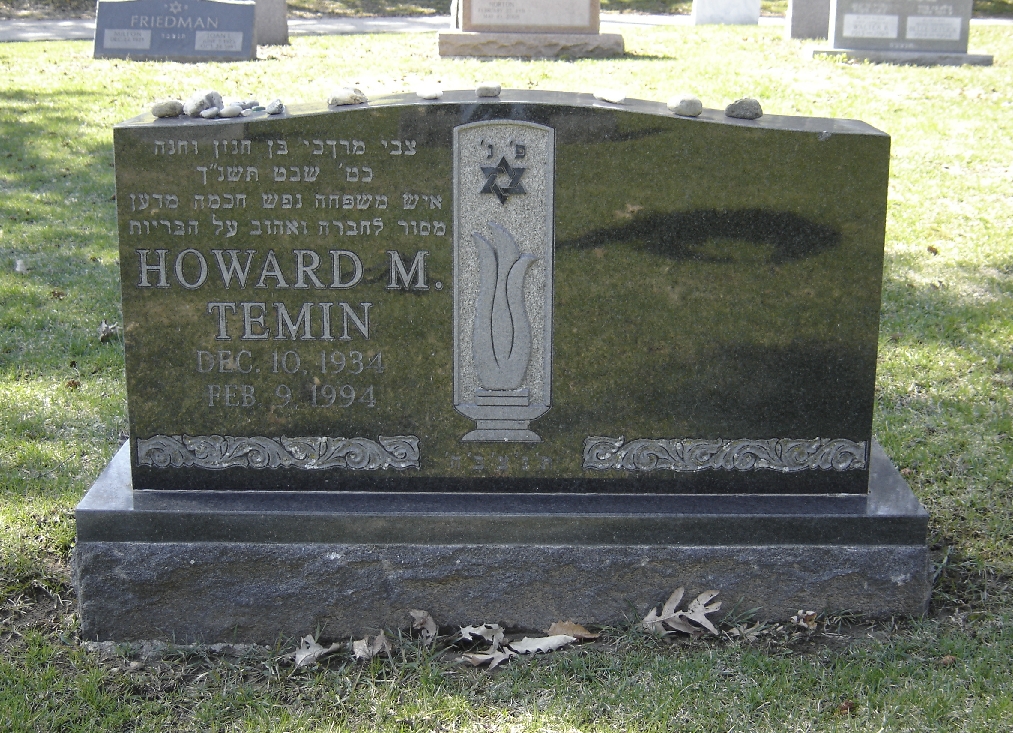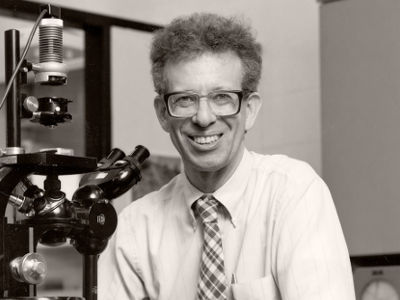and David Baltimore.
Temin was educated at Central High School in Philadelphia and Swarthmore College (BA in Biology in 1955), then received his doctorate degree in animal virology from the California Institute of Technology in 1959. In 1960, the McArdle Laboratory for Cancer Research at the University of Wisconsin–Madison recruited Temin as a virologist. He spent the remainder of his career at the University of Wisconsin.
Following winning the Nobel Prize, Temin focused his research mainly on studying the viral sequences that control the packaging of viral RNA, developing a new vaccine for HIV, and studying the mechanisms of retroviral variation. Online and published sources contain extensive details about his career, his research, and the importance of his discoveries.
Temin died of lung cancer but he was not a smoker. It is said that at the Nobel Prize ceremony where he was awarded the prize, he lectured the audience on the perils of smoking.
and David Baltimore.
Temin was educated at Central High School in Philadelphia and Swarthmore College (BA in Biology in 1955), then received his doctorate degree in animal virology from the California Institute of Technology in 1959. In 1960, the McArdle Laboratory for Cancer Research at the University of Wisconsin–Madison recruited Temin as a virologist. He spent the remainder of his career at the University of Wisconsin.
Following winning the Nobel Prize, Temin focused his research mainly on studying the viral sequences that control the packaging of viral RNA, developing a new vaccine for HIV, and studying the mechanisms of retroviral variation. Online and published sources contain extensive details about his career, his research, and the importance of his discoveries.
Temin died of lung cancer but he was not a smoker. It is said that at the Nobel Prize ceremony where he was awarded the prize, he lectured the audience on the perils of smoking.
Gravesite Details
Spouse: Rayla Greenberg m: 1962
Family Members
Sponsored by Ancestry
Advertisement
Advertisement




